Generally, the best way to prevent heartburn when drinking alcohol is to simply avoid it as much as possible.
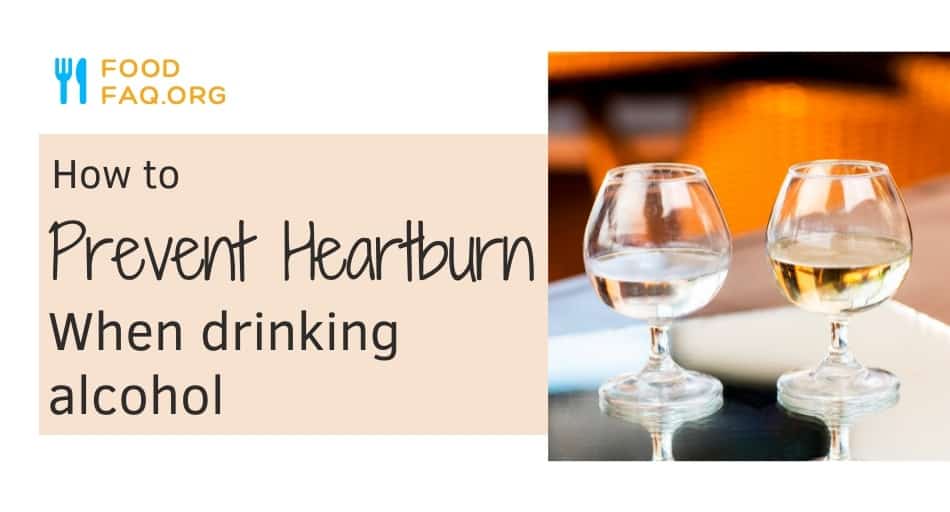
But on special occasions and during holidays, it’s hard to stay away from an occasional glass of wine or a drink.
So, what should you do if alcohol gives you heartburn? Are there any ways you can avoid it?
Table of Contents
How To Prevent Heartburn When Drinking Alcohol?
If alcohol gives you heartburn, there are several ways you can deal with this issue. From drinking smaller quantities to choosing less sugary and acidic liquors, you can definitely enjoy an occasional drink without feeling the burn the next day.
After all, you don’t have to give up everything you love when you suffer from acid reflux or GERD.
What causes heartburn when drinking alcohol?
One of the main reasons why alcohol causes heartburn is that it impairs the function of the muscles that separate your esophagus and stomach.
This makes the gastric acid more likely to rise up and leak to your esophagus, causing heartburn and other issues.
Because of that, alcohol is often considered a trigger beverage for people with acid reflux and GERD and those with other digestive system issues.
Alcohol also impairs nutrient absorption. A healthy balanced diet is necessary to prevent inflammation and reduce acid reflux symptoms, such as heartburn.
When your body isn’t absorbing nutrients properly, it can’t digest the alcohol and reduce its negative effects on your digestive system.
This can make your symptoms last longer and make them more severe.
How to reduce heartburn symptoms when drinking alcohol?
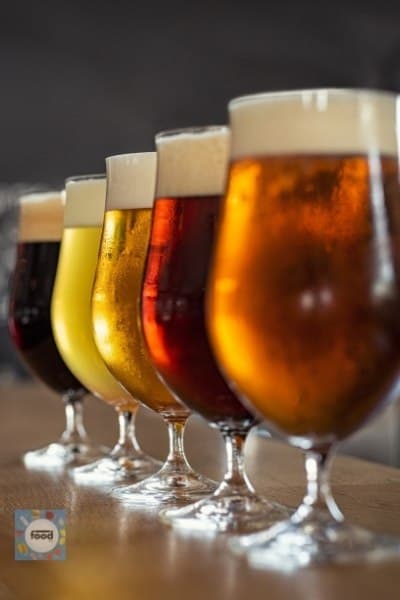
There are several ways you can cope with heartburn when drinking. The best is to limit your consumption of alcoholic beverages.
Try sticking to one or two drinks instead of overdoing it. If you drink too much, you’re not only going to experience more severe heartburn, but you’re also going to be hungover the next day.
This will make you feel much worse, so try avoiding that.
Another way is to stick to high-percentage alcohols, such as vodka, tequila, white rum, or gin.
These contain fewer chemicals and compounds that not only give you a massive hangover but are also acidic.
Wine and beer are also more likely to give you heartburn and other acid reflux symptoms than hard liquor. So, while it might seem counterintuitive, try drinking pure alcohol.
In addition, try avoiding mixing your drinks with acidic juices like orange juice, carbonated beverages, or sugary sodas.
These are acidic and will make your acid reflux much worse. Instead, choose mixers like a tonic, club soda, or simply take shots.
This will reduce the amount of pressure put on your stomach and esophagus, easing the symptoms of acid reflux.
Also, make sure to avoid getting too intoxicated, not only to feel better the next day but also because you’re more likely to make questionable eating choices.
For example, people under the influence tend to eat fatty foods high in carbs, which worsen your heartburn and other symptoms.
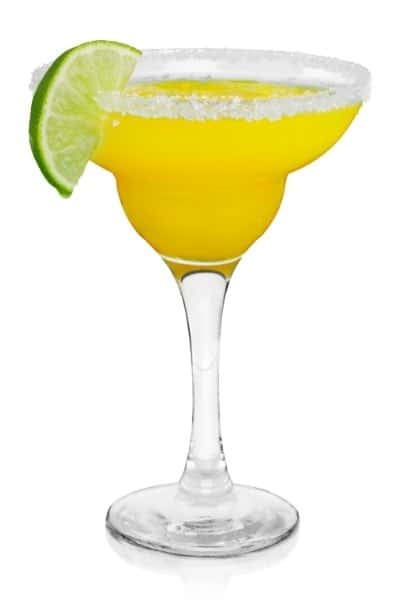
Some people also smoke when they’re drunk, which has been linked with much more severe heartburn the next day.
What’s more, one study showed that taking proton pump inhibitors (PPIs) – a medicine that reduces how much acid your stomach produces – prior to heavy drinking reduces the severity of acid reflux and heartburn.
As a result, if you know you’ll be going out and indulging one night, it might be a good idea to take the medication before to prevent severe heartburn.
Some of them are available over-the-counter, but other, stronger versions require a prescription.
What type of alcohol is least likely to give you heartburn?
If you suffer from acid reflux, the worst drinks you can make are sugary and high in acid. So make sure to avoid beverages that are high in sugar and calories, as these will make your symptoms much worse.
If you’re going out and you know you’re going to drink, choose pure alcohol and stick to just a few shots or choose drinks based on club soda or tonic.
These are the easiest for your digestive system and the least likely to give you severe heartburn and other symptoms.
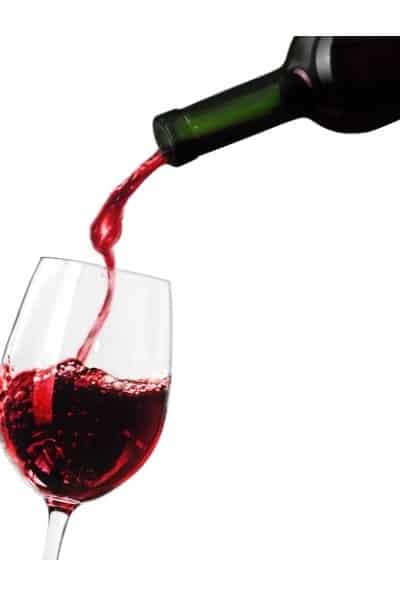
Can drinking alcohol be good for you?
Drinking alcohol may have some health benefits, but only if it’s done in moderation. Excessive consumption of alcohol can lead to alcoholism, early-onset alcoholism dementia, multi-organ failure, and even death.
So, whenever you drink, make sure you’re doing so responsibly.
Studies show that light to moderate alcohol intake may reduce your risk of multiple cardiovascular conditions, including stroke, heart disease, coronary heart disease, and high blood pressure.
This is because alcohol can dilate your blood vessels and dilute your blood, making it flow easier throughout your body.
It’s important to note, though, that this benefit disappears entirely when you drink a lot very often.
Then, it can lead to severe neurological impairment and even an increased risk of stroke and heart disease.
Additionally, light to moderate drinking may lower your risk of weight gain and becoming overweight as compared to nondrinkers.
This benefit has only been noticed in association with regular exercise, a balanced diet, and a healthy lifestyle. On the other hand, binge drinking, especially beer and wine, might lead to a rapid weight gain.
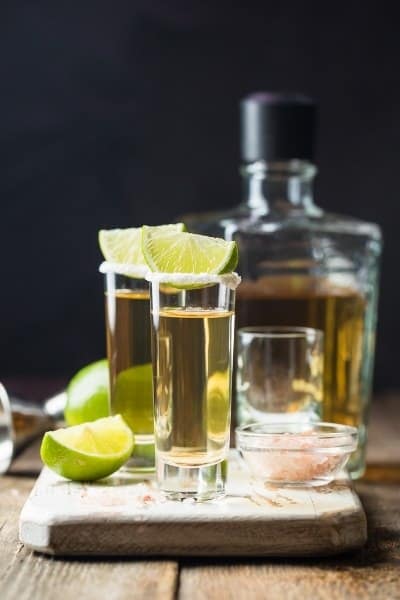
As a result, the best types of alcohol might be low-calorie white liquor like vodka or gin.
While heavy drinking causes early-onset alcoholic dementia and other neurological deficits, moderate drinking may reduce the risk of dementia, especially in older adults.
This doesn’t mean that you should drink to improve your cognitive health, though, as ethanol reduces the communication between your brain cells.
This can lead to memory loss and other issues. That’s why it’s important to practice safe drinking.
Conclusion
Drinking alcohol definitely worsens your acid reflux and causes unpleasant symptoms like heartburn.
But luckily, there are some steps you can take to minimize the negative side effects of any drinking you might do.
But, even though there are some tried-and-true ways to reduce heartburn after drinking, remember that the best option is to reduce how much you’re drinking altogether.
